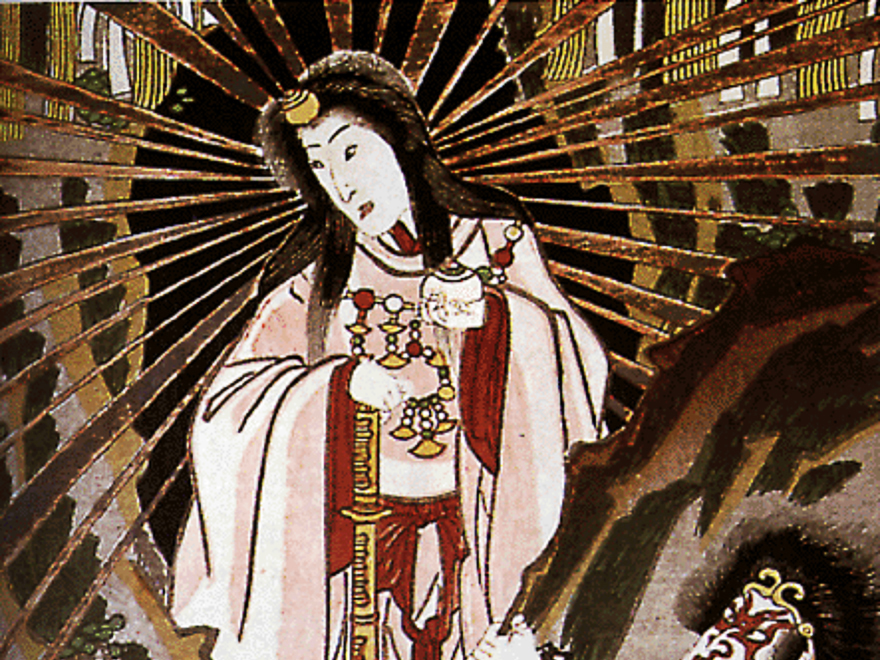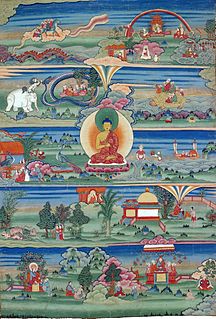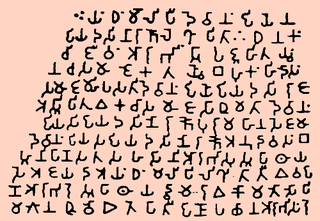 W
WAbhidharma (Sanskrit) or Abhidhamma (Pali) are ancient Buddhist texts which contain detailed scholastic presentations of doctrinal material appearing in the Buddhist sutras. It also refers to the scholastic method itself as well as the field of knowledge that this method is said to study.
 W
WThe akuma (悪魔) is a malevolent fire spirit in Japanese folklore. It is also described as a category of undefined beings who brought afflictions on humans.
 W
WThe parable of the blind men and an elephant originated in the ancient Indian subcontinent, from where it has been widely diffused. It is a story of a group of blind men who have never come across an elephant before and who learn and imagine what the elephant is like by touching it. Each blind man feels a different part of the elephant's body, but only one part, such as the side or the tusk. They then describe the elephant based on their limited experience and their descriptions of the elephant are different from each other. In some versions, they come to suspect that the other person is dishonest and they come to blows. The moral of the parable is that humans have a tendency to claim absolute truth based on their limited, subjective experience as they ignore other people's limited, subjective experiences which may be equally true.
 W
WThe Jataka tales are a voluminous body of literature native to India concerning the previous births of Gautama Buddha in both human and animal form. The future Buddha may appear as a king, an outcast, a god, an elephant—but, in whatever form, he exhibits some virtue that the tale thereby inculcates. Often, Jātaka tales include an extensive cast of characters who interact and get into various kinds of trouble - whereupon the Buddha character intervenes to resolve all the problems and bring about a happy ending.
 W
WLipi means 'writing, letters, alphabet', and contextually refers to scripts, the art or manner of writing, or in modified form such as lipī (लिपी) to painting, decorating or anointing a surface to express something.
 W
WMonogatari is a literary form in traditional Japanese literature – an extended prose narrative tale comparable to the epic novel. Monogatari is closely tied to aspects of the oral tradition, and almost always relates a fictional or fictionalized story, even when retelling a historical event. Many of the great works of Japanese fiction, such as the Genji Monogatari and the Heike Monogatari, are in the monogatari form.
 W
WSutra in Indian literary traditions refers to an aphorism or a collection of aphorisms in the form of a manual or, more broadly, a condensed manual or text. Sutras are a genre of ancient and medieval Indian texts found in Hinduism, Buddhism and Jainism.
 W
WSuvannamaccha is a daughter of Tosakanth appearing in the Thai and other Southeast Asian versions of Ramayana. She is a mermaid princess who tries to spoil Hanuman's plans to build a bridge to Lanka but falls in love with him instead.
 W
WSupachai Tangwongsan is a Thai emeritus professor of computer science at Mahidol University, Thailand. He received his Doctor of Philosophy degree in electrical engineering at Purdue University with the Royal support of King Ananda Mahidol Foundation scholarship.